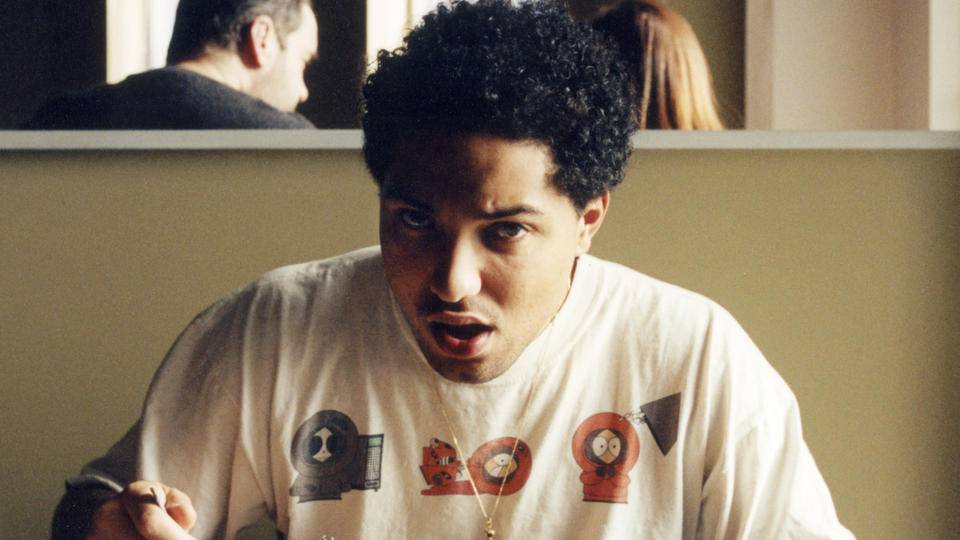5 Myths We All Need To Stop Believing About Mental Health Illnesses

This week marks Mental Health Awareness week in the UK and with 70% of 18-34 year olds saying they have experienced a mental health problem according to new research by the Mental Health Foundation, it begs the question: why isn't it something we're talking about more?
Let's clear up a few of the most common myths surrounding mental health illness once and for all.
Myth #1- 'Only certain people areaffected bymental health problems'
The stats don't lie and with 65% of Britons reportedly now saying they've experienced a mental health problem, it proves that most of us will deal with ups and downs regarding our mental health during our lifetime. And these figuresdoesn't mean that people haven't always been dealing with mental health illnesses, but perhaps more that what we've already done to break down stigma is allowing more people to be honest about their experiences and get the help they need and deserve to improve their quality of life instead of suffering in silence.
It's also worth noting that mental health issues come in many, many different forms. If you don't happen to be affected by poor mental health at one time of your life or another, then lucky you, but this is also likely to be quite unusual. MHIs includedepression, anxiety, panic attacks, bipolar disorder,PTSD and many more, and can also vary widelyin terms of the severity and impact the resulting conditions have on your overall mental health.
You never know what's going to happen so it's worth being aware and able to recognise when you or those around you are struggling,as well asbeing open to reaching out for help if you need it.
Myth #2- 'Mental health problems are a sign of weakness'
Thanks to a history of stigmatisation and negative stereotypes portrayed in popular culture,mental health illness has often been seen viewed as a weakness. This issomething that often stops people feeling like they can speak out and ask for help - but it just shouldn't have tobe that way.
After all, if you had a broken leg, you'd go straight to the doctor. Why should it be any different when the illness happens to be mental?
Myth #3 - 'People with mental health problems are dangerous'
Thank youmedia culture,for exacerbating the false myth that those with mental health issues are more likely to be dangerous and violent. Those dealing with poor mental health are actually much more likely to be victims of violence and generally speaking, way more likely to harm themselves than others. Stats show that only 3-5% of violent acts in the UK are committed by people with a serious mental illness.
This sense of suspicion we have towards those with an MHI is not only false, but can also be extremelyalienating: surely it would make way more sense to put that negative energy into supporting and trying harder to understand their experiences instead?
Myth #4 - 'People with mental illnesses have to take drugs to cope'
Medication is certainly used to treat certain mental illnesses and it can be extremely effective, but this is not the only method used intreatment. It really depends on the illness, but counselling and cognitive behaviour therapy are increasinglyvery important tools in treating many mental health conditions too - both of which involve talk therapy to help address problems at their root.
What it is important to realise is that treatment totally depends from illness to illness and from person to person. If you are diagnosed with a mental health illness your doctor feels would benefit from being treated by medication, you will work together to find a type and dosage that works for you. Depending on the condition, it may be adjusted over time, whether that's increasing dose, decreasing dose orcoming off. You may find that you need medication in the short-term or you may find it works better for you to stay on it long-term. It's just what works best for a personand theirindividual health.
Myth #5 - 'Having a mental illness is going to ruin my life'
What you need to remember is that you are not your illness: yes, it might make things complicated at times and yes, it might feelvery scary and hard to begin to come to terms with,but it's not impossible and there are ways to learn to treat and cope with your illness, whatever thatmay be.You are also still you and very much not your illness and there are so many people out there who can support you through it.
What you are going to have to do is let them. Opening up can feel like the hardest thing to do, but when you are struggling, speaking to someone you trust - be that a friend, family member, doctor or even someone trained to help - can make a real difference.
'If you are dealing with mental health issues,want to find out more information or want toshow your support for those around you who are, visit YoungMinds.org.ukright now. They have piles ofadvice, support and resources just waiting for your eyeballs to check them out.'





